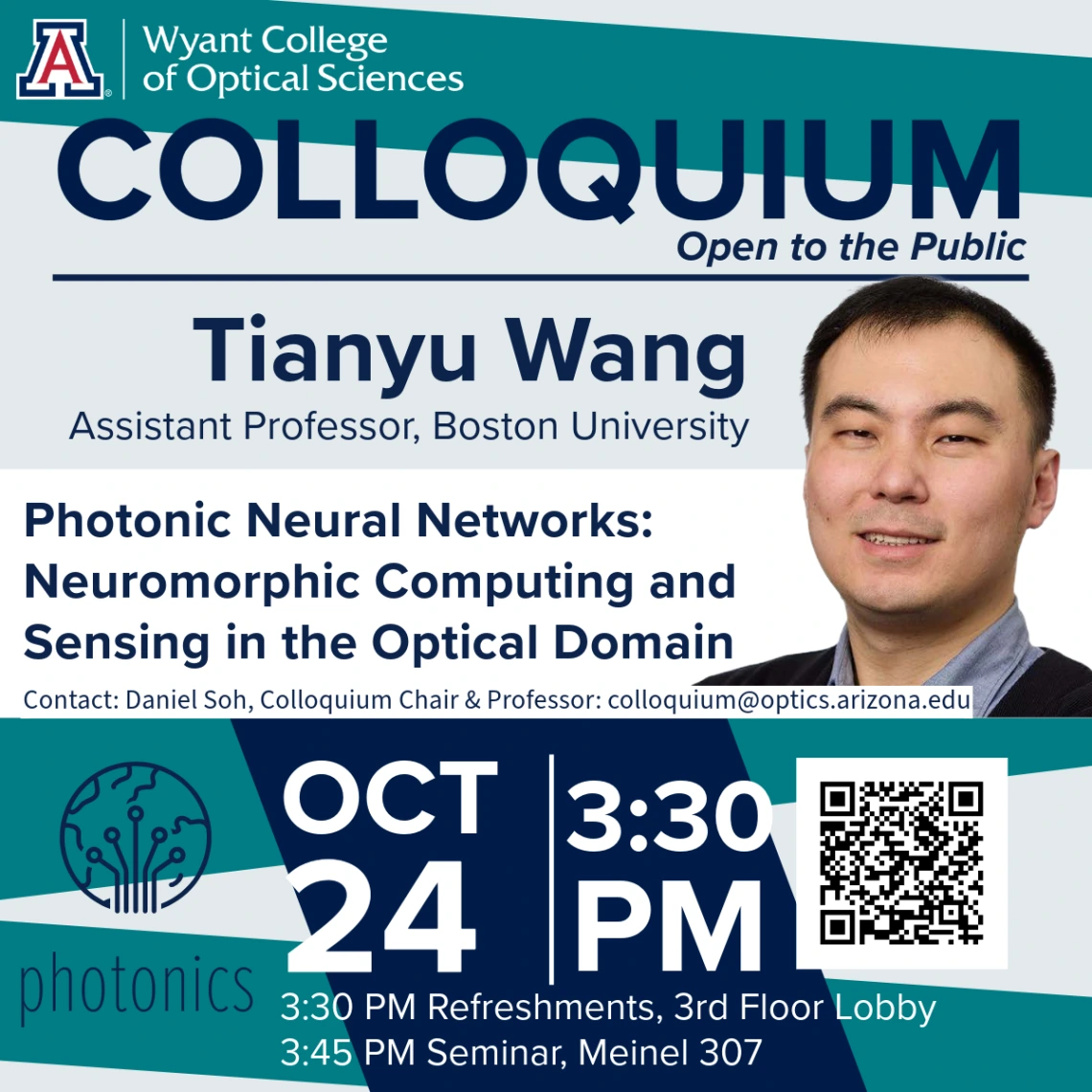
When
Where
Title
Photonic Neural Networks: Neuromorphic Computing and Sensing in the Optical Domain
Abstract
Artificial intelligence (AI) has significantly transformed how we process real-world data, such as natural language and visual scenes. Photonic neural networks hold great promise for efficient AI computation because optics follows an energy scaling rule that is more favorable than digital electronics for large-scale linear operations, which constitute most of the computations in artificial neural networks. Based on experimental results, I will first demonstrate that this energy scaling rule remains valid even at extremely low optical energy levels, below 1 photon per scalar multiplication. This optical energy advantage is particularly significant for implementing AI foundation models, such as Transformers, which are typically used for language processing. Beyond the energy efficiency for large AI models, I will also discuss another advantage of optical computing: the ability to process optical data directly in the optical domain. I will provide an example of using a nonlinear photonic neural network for image sensing applications, achieving an 800-fold image compression ratio to bypass the optoelectronic conversion bottleneck. Finally, I will offer an outlook on how optical processing techniques can enhance imaging and sensing efficiency, particularly for quantum light.
Bio
Tianyu Wang is an Assistant Professor to the Department of Electrical and Computer Engineering at Boston University. He is interested in developing novel methods for imaging, sensing, and computing by leveraging emerging technologies from photonics and artificial intelligence.
Can't Join Us In Person?
Register for the Zoom Webinar!
Subscribe to Upcoming Colloquium Announcements
Visit our website for future lecture dates and speaker information
